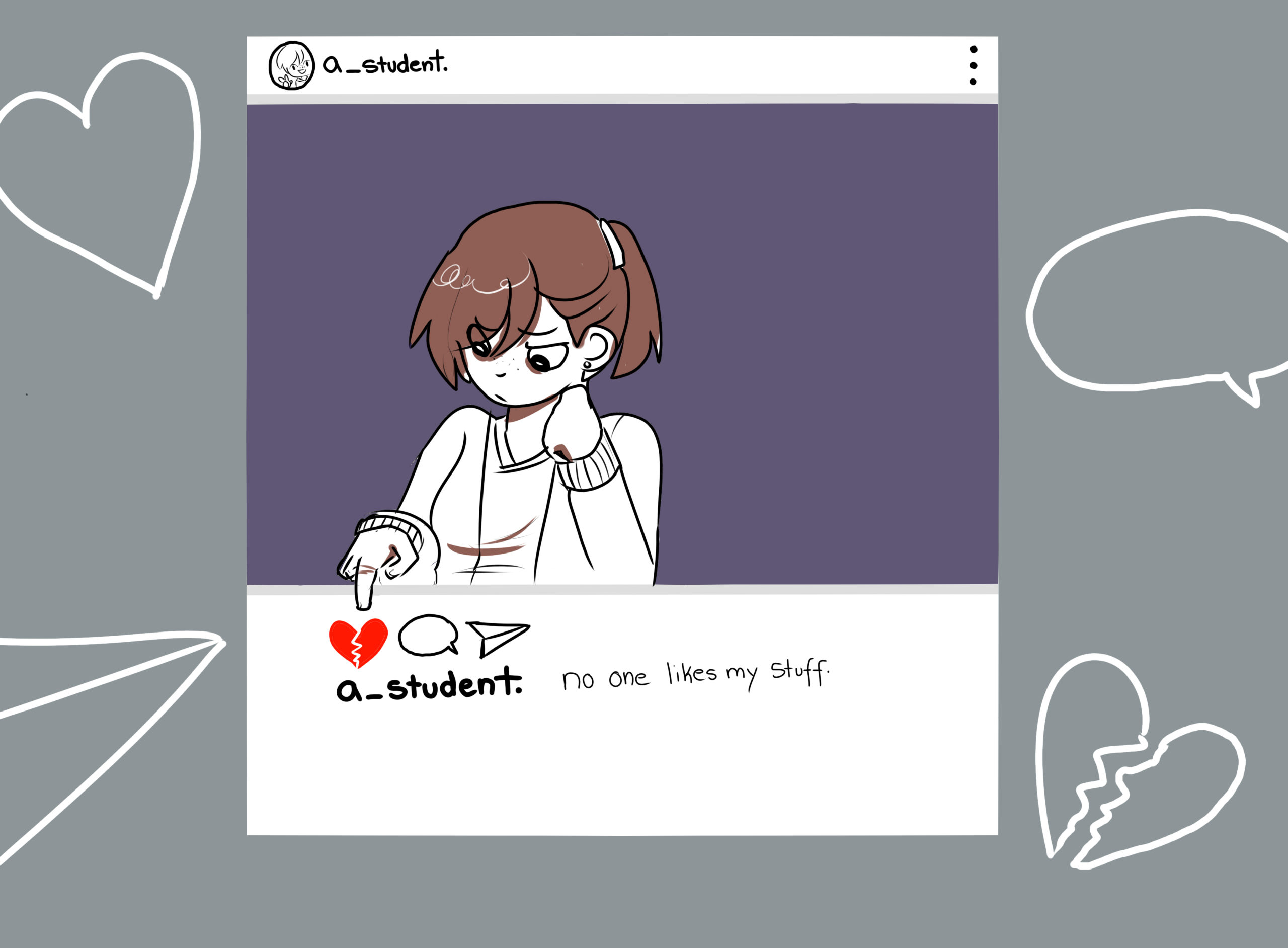Golnaz Taherian | Arts Editor
Featured image courtesy of Jasmine Wiradharma
The explosive growth of social media is a double-edged sword. On one hand, it facilitates communication between countries and spreads international news; on the other hand, it is addictive, shortens our attention spans, and erodes our interpersonal skills.
Social media, specifically Instagram, helps shrink the distance between me and my friends and family across the globe; however, there are some downsides to the app.
Many of us tend to check our social media the moment we wake up. This creates a terrible habit of overstimulating our brains during a period when we need calmness. The cycle continues throughout the day, and also at night, another time when we often check our phones.
Over time, this vicious cycle crystallizes; our brains become rewired and reconditioned. We can experience brain fog, depression and anxiety.
When we log in to Instagram, we automatically compare our lives to others. Most people don’t post their dark moments or weaknesses on the internet, they present an idealized picture of themselves.
We don’t see a friend or family member struggling with financial stress; rather, we see them on a trip to Mexico, sipping a latte on a beach, and we assume that their lives are great, while we are experiencing hard times.
On social media, people obsess over getting comments, likes, shares and follows. When we see that little heart or thumbs-up sign, we get a hit of dopamine to the brain and feel good. We begin to crave more. In this way, social media acts as a real chemical addiction.
It’s so easy for us to flush hours down the toilet watching cat videos, searching through photos, and reading gossip articles; this can be distracting and time-consuming. It also stifles our critical thinking.
Posting on social media is a great way to look back on fond memories. However, sometimes when we are at a killer concert or party, we put so much pressure on ourselves to capture everything, we don’t get to experience it to its fullest.
For instance, when I went to Coldplay’s concert last year, I focused too much on filming the concert. Even though I have many videos to reminisce on one of the best nights of my life, I wish I had focused more on actually being in the moment.
Instagram can give younger generations a false perception of beauty that can lead to body dysphoria and depression.
In a CNN article “Instagram worst social media app for young people’s mental health”, Kara Fox reports that according to the survey done by the Royal Society for Public Health in the UK, Instagram has adverse effects on young people’s mental health.
Matt Keracher, author of the report, states: “Instagram draws young women to compare themselves against unrealistic, largely curated, filtered and Photoshopped versions of reality.”
To combat this problem, we must absorb the latest scientific research and utilize what we learn in our day-to-day lives to ensure we educate ourselves and the younger generation on how to use social media responsibly.


